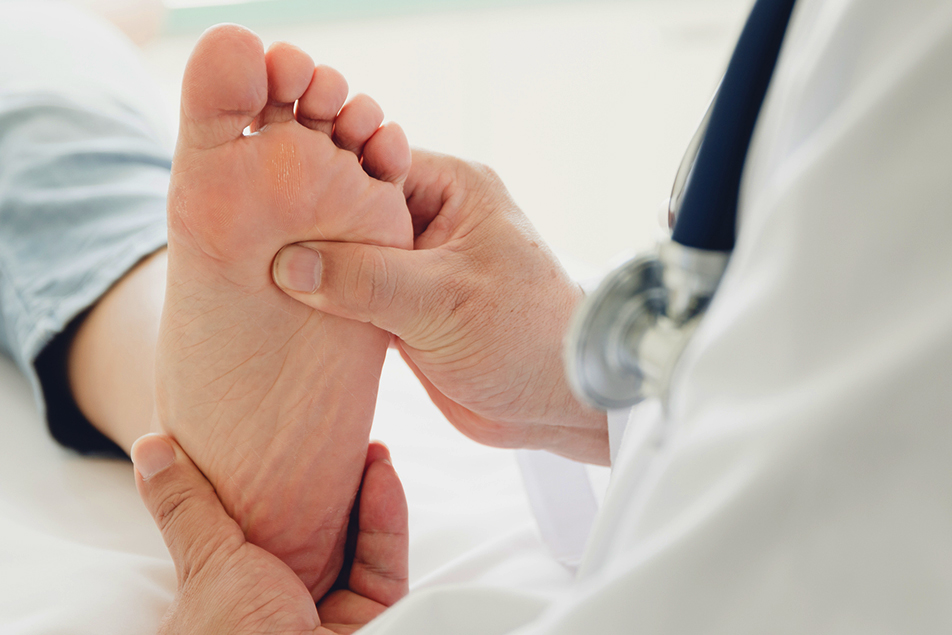
Foot ulcers and neuropathy are common conditions that people navigating a diabetes diagnosis have to manage. As Ashley Bojrab, DPM, FACFAS, ABPM, PPG – Podiatry shares, prevention is imperative, but when these issues arise, it’s important to work with your podiatrist or primary care provider to address them quickly. Here, she explains more.
Diabetes and the body
Diabetes is a disease that can affect many different systems in the body, including the eyes, kidneys, immune system, cardiovascular system and even the nervous system. Two of these – the nervous and circulatory systems – can affect the feet.
Foot conditions linked to diabetes
Neuropathy is disease of the nerves. In this case, neuropathy is due to high blood sugars. Patients may experience numbness, burning, and or tingling in their feet. Unfortunately, this is a permanent issue that has no known cure at this time. Diabetes also affects our circulation. Damage to the blood vessels and buildup of plaque preventing good blood flow to the feet.
The skin of the foot can be affected by diabetes, resulting in issues such as athlete's foot. If this fungal infection occurs, the skin becomes red, itchy and may eventually crack. Callus and corns are also commonly seen in diabetic patients due to increased pressure or friction in an area that causes a thickening and buildup of skin. Blisters can form due to rubbing in shoe gear. If left unnoticed, patient can develop a wound, leading to a diabetic foot ulcer, which could lead to a series of issues and complications. In severe cases, when a diabetic foot ulcer worsens, it could lead to an amputation.
Treatment
Prevention is the best way to keep your feet healthy, but, if a callus or blister should arise, it is important to be seen by your podiatrist or family doctor as these conditions could worsen rapidly. Calluses can easily be treated in the office before they cause a breakage in the skin.
It’s important to avoid walking barefoot and always wear a rubber soled shoe on your feet. Always look at the bottoms of your feet every day before you put your shoes on. This is the first line of defense. It’s important that shoes fit well for your foot. Rubbing could cause friction, leading to blisters.



